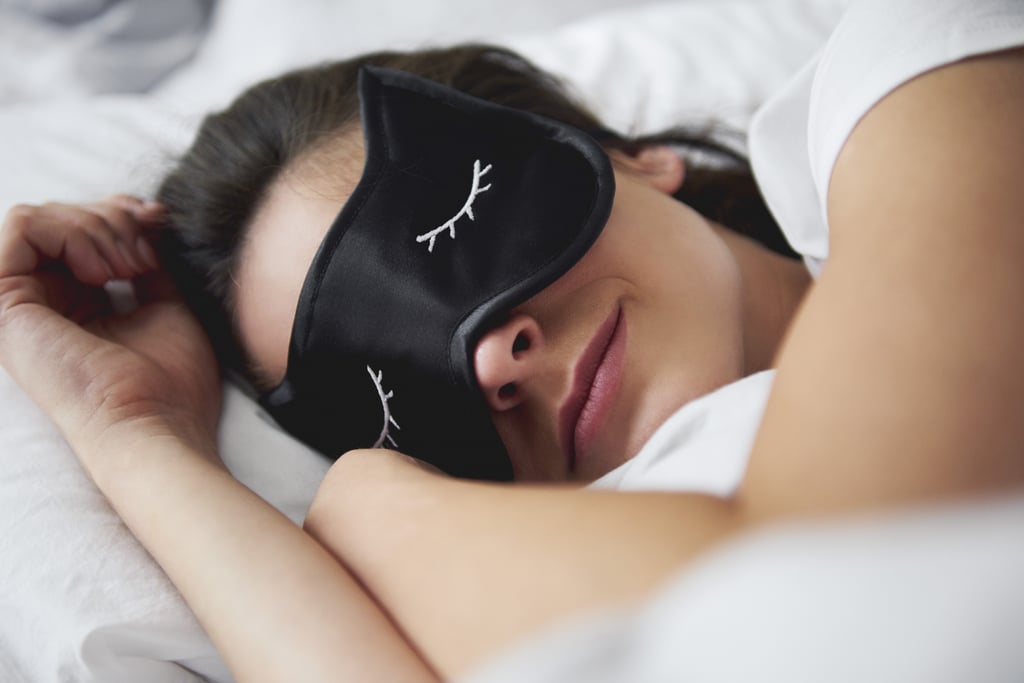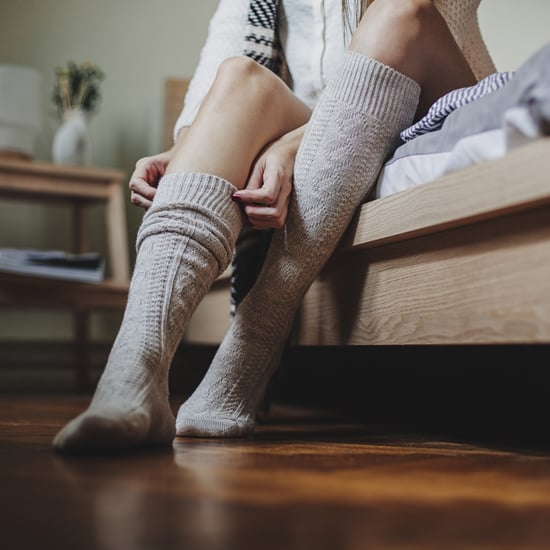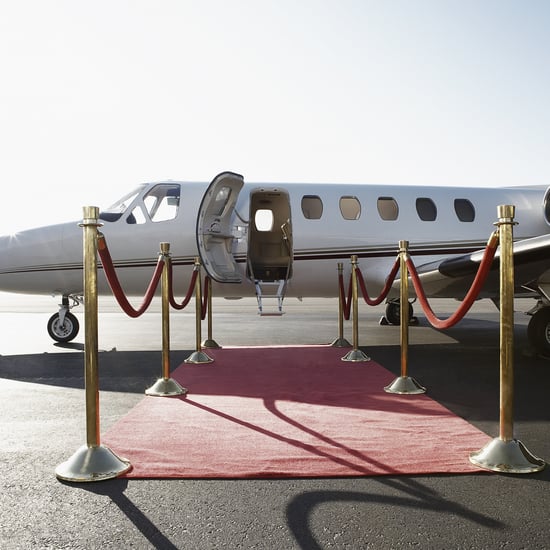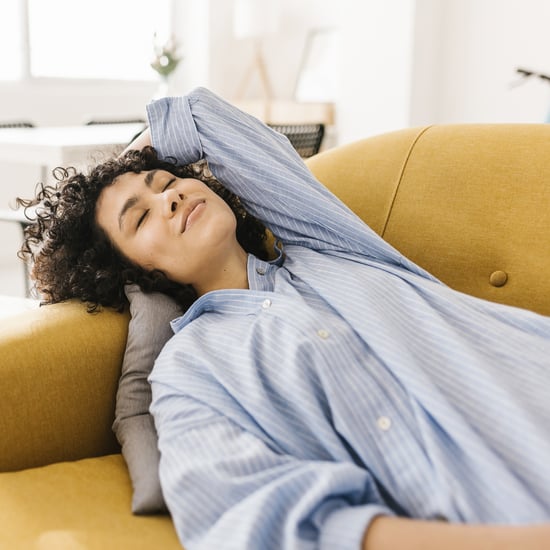Is Blue Light Bad For Sleep?
4 Ways to Stop Blue Light From Ruining a Good Night's Sleep — and Your Circadian Rhythm

As dedicated as I'm trying to be about my yearlong goal of getting better sleep, one habit I can't seem to kick is using tech before bed. I'm a big fan of bingeing YouTube videos, catching up on The Bachelor, and reading news stories from my comfy bed. Sometimes I'll be working late. Other times I'm FaceTiming my boyfriend. If there's an excuse out there to keep me scrolling instead of sleeping, I'll find it.
This is a common problem, and one that really can screw up your sleep. At first, I'm too distracted, entertained, and awake to want to power down. Then, when I finally do turn in for the night, my brain is still buzzing from the stimulation. I'm lying in bed feeling wired-up instead of sleepy.
What is it about our devices that makes it so hard to go to sleep? You may have heard of a little thing called blue light, which is a wavelength of visible light produced naturally by the sun and artificially by our devices. Natural blue light during the day can help you stay awake and even provide a mood boost. But when you're overexposed to it, especially from your devices and especially at night, it can wreak havoc on your sleep-wake cycle and your sleep quality in general.
Blue Light Disrupts Your Circadian Rhythm
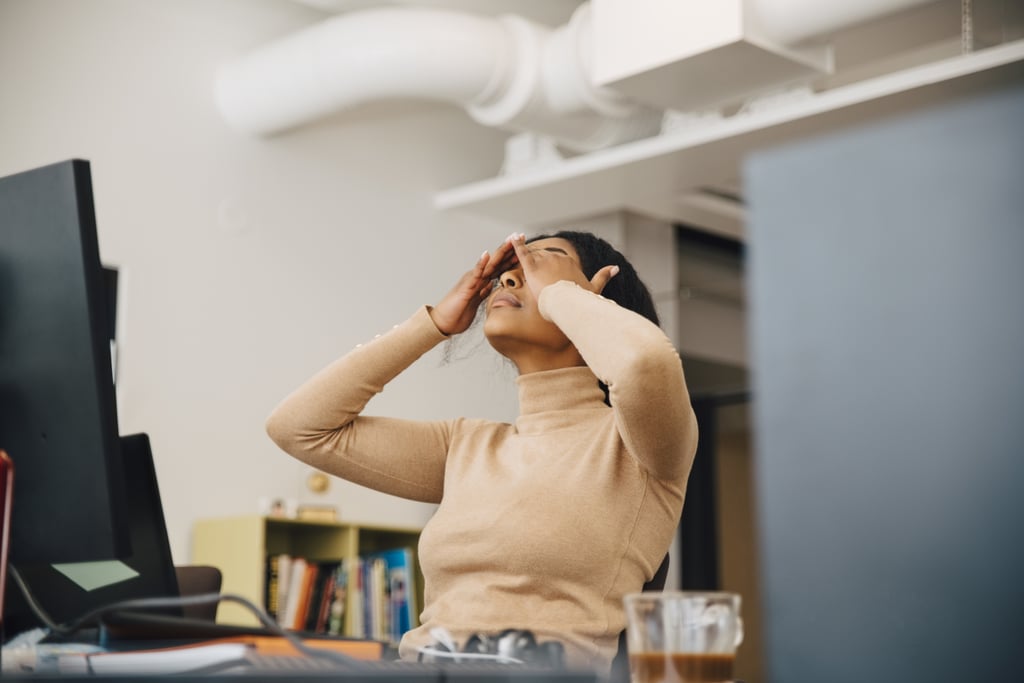
Blue Light Suppresses Melatonin
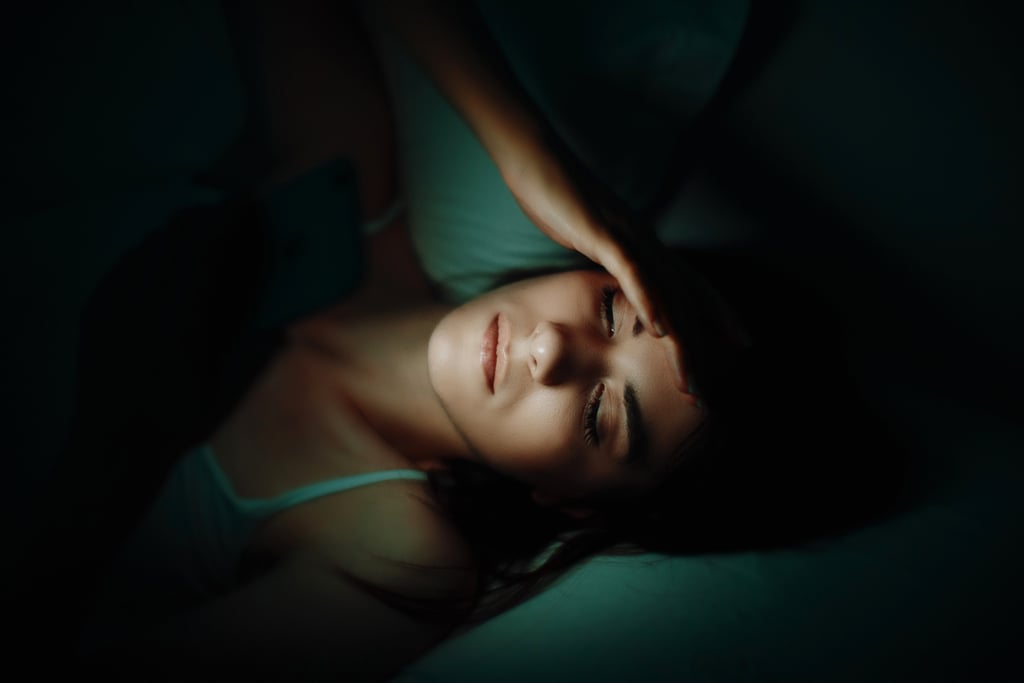
Blue Light Makes You Feel More Awake
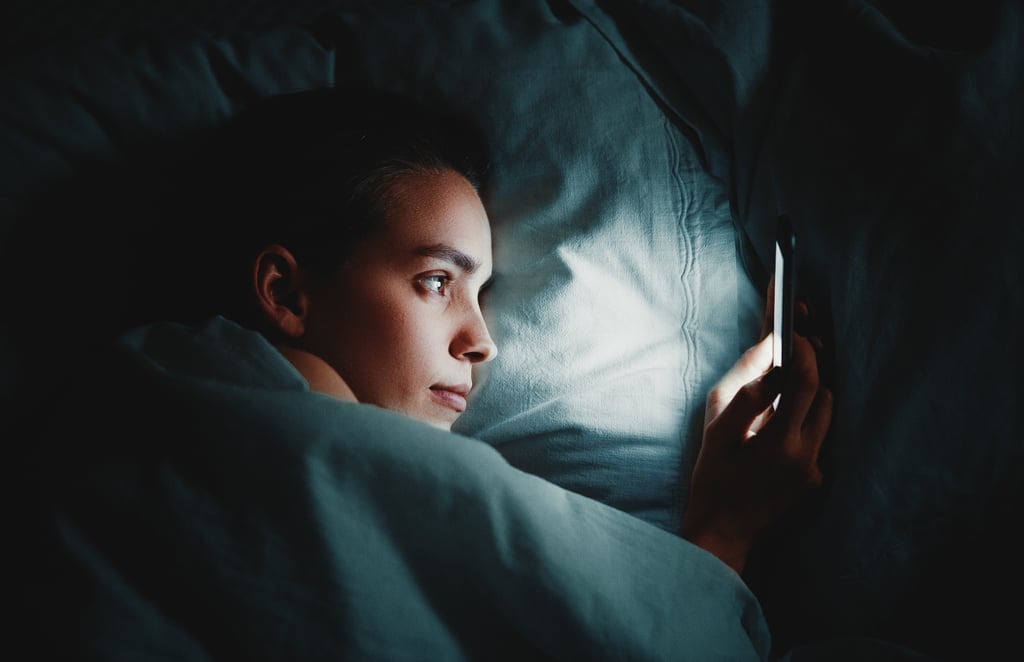
How Can I Stop Blue Light From Hurting My Sleep?
